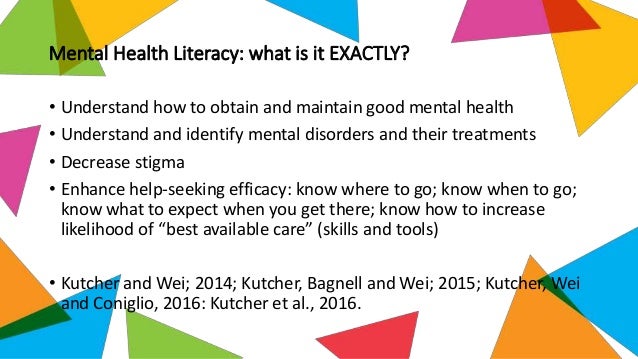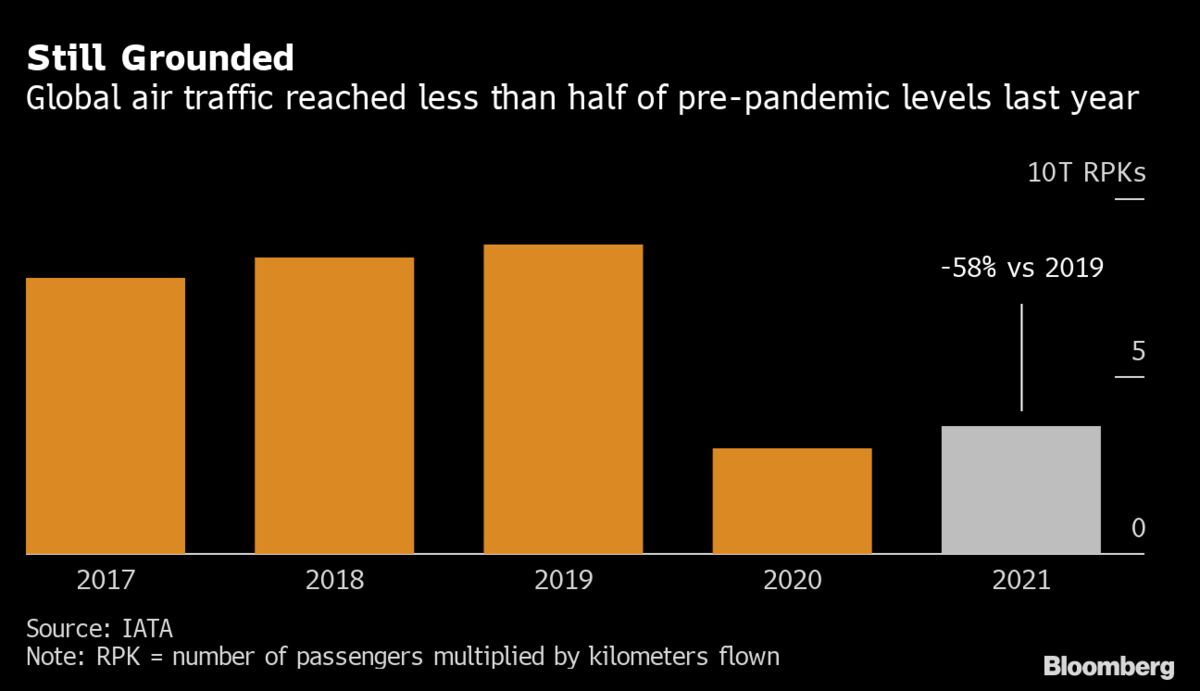Enhancing Mental Health Literacy: Educational Programs And Resources

Table of Contents
Understanding Mental Health Literacy
Defining Mental Health Literacy
Mental health literacy refers to the knowledge and skills necessary to understand, identify, and address mental health issues. It's about possessing the tools to recognize the signs and symptoms of common mental health conditions, understanding the risk factors involved, and knowing where to access appropriate support.
- Defining common mental health conditions: This includes understanding the differences and similarities between conditions like anxiety disorders (generalized anxiety disorder, panic disorder, social anxiety disorder), depressive disorders (major depressive disorder, persistent depressive disorder), bipolar disorder, schizophrenia, and others.
- Understanding risk factors: Recognizing factors like genetics, life stressors, trauma, and substance abuse that can increase vulnerability to mental health challenges.
- Recognizing warning signs: Learning to identify early signs and symptoms of mental health problems in oneself and others, such as changes in mood, sleep patterns, appetite, and behavior.
- Knowing where to seek help: Understanding the resources available, including therapists, counselors, psychiatrists, helplines, and support groups.
The Importance of Mental Health Literacy
Improved mental health literacy offers significant benefits at individual, family, and community levels.
- Reduced stigma: Greater understanding reduces the shame and embarrassment associated with mental illness, encouraging open conversations and seeking help.
- Early intervention: Recognizing early warning signs allows for timely intervention, improving treatment outcomes and preventing more severe problems.
- Improved help-seeking behavior: Individuals with better mental health literacy are more likely to seek professional help when needed.
- Increased support networks: Improved literacy empowers families and friends to provide better support and understanding to those struggling with mental health issues.
Educational Programs for Enhancing Mental Health Literacy
School-Based Programs
Educating children and adolescents about mental health is paramount. Schools play a crucial role in fostering mental health literacy from a young age.
- Examples of successful school programs: Many schools incorporate age-appropriate curriculums focusing on emotional intelligence, stress management, and resilience.
- Curriculum development: Well-designed curriculums provide a comprehensive understanding of mental health, including definitions of conditions, risk factors, and coping mechanisms.
- Teacher training: Equipping teachers with the knowledge and skills to address mental health concerns in the classroom is essential.
- Peer support initiatives: Peer-to-peer support programs can create a safe space for students to discuss mental health challenges and provide mutual support.
Workplace Mental Health Initiatives
Promoting mental health awareness in the workplace is crucial for employee well-being and productivity.
- Stress management programs: Offering workshops and resources on stress management techniques can significantly improve employee mental health.
- Employee assistance programs (EAPs): EAPs provide confidential counseling and support services to employees experiencing mental health challenges.
- Mental health first aid training: Training employees to recognize and respond to mental health crises can make a significant difference in the workplace.
Community-Based Programs
Community initiatives play a vital role in broadening access to mental health literacy resources.
- Workshops and seminars: Offering workshops and seminars on various mental health topics can educate the public and improve understanding.
- Public awareness campaigns: Public awareness campaigns raise awareness about mental health issues, reduce stigma, and promote help-seeking.
- Partnerships with community organizations: Collaboration between mental health organizations and community groups expands the reach and impact of mental health literacy initiatives.
Online Resources and Tools for Enhancing Mental Health Literacy
Websites and Apps
The internet offers a wealth of information and support for improving mental health literacy.
- Reputable websites: Websites like the National Alliance on Mental Illness (NAMI) and MentalHealth.gov provide reliable information about mental health conditions, treatment options, and support resources.
- Mental health apps: Many apps offer self-assessment tools, mindfulness exercises, and platforms to connect with mental health professionals.
Social Media and Online Communities
Social media can be a powerful tool for raising awareness and fostering peer support, but it also presents challenges.
- Raising awareness and peer support: Social media platforms can be used to share information, connect with others, and build supportive online communities.
- Misinformation and online safety: It's crucial to be aware of the potential for misinformation and to prioritize reliable sources of information. Online safety and responsible social media use are crucial for mental well-being.
Conclusion
Enhancing mental health literacy is essential for creating a more supportive and understanding society. By understanding the definition of mental health literacy, utilizing available educational programs and resources, and engaging in open conversations, we can collectively improve mental well-being. Through school-based initiatives, workplace programs, community resources, and the wealth of online tools available, we can all contribute to improving mental health literacy. Start improving your mental health literacy today! Learn more, share your knowledge, and help build stronger, healthier communities by actively promoting mental health literacy.

Featured Posts
-
 Champions League Race Heats Up Souness On Arsenal And A Dominant Rival
May 03, 2025
Champions League Race Heats Up Souness On Arsenal And A Dominant Rival
May 03, 2025 -
 A Practical Guide To Visiting This Country
May 03, 2025
A Practical Guide To Visiting This Country
May 03, 2025 -
 Farage Backs Snp Reforms Stance On Upcoming Holyrood Election
May 03, 2025
Farage Backs Snp Reforms Stance On Upcoming Holyrood Election
May 03, 2025 -
 Fortnite The Rarest And Most Coveted Skins
May 03, 2025
Fortnite The Rarest And Most Coveted Skins
May 03, 2025 -
 South Korean Prime Minister Hans Resignation Presidential Bid Imminent
May 03, 2025
South Korean Prime Minister Hans Resignation Presidential Bid Imminent
May 03, 2025
Latest Posts
-
 45 Vuelta Ciclista A La Region De Murcia Victoria Para Fabio Christen
May 04, 2025
45 Vuelta Ciclista A La Region De Murcia Victoria Para Fabio Christen
May 04, 2025 -
 Soaring Fuel Costs The Airline Industrys Struggle With Oil Supply Shocks
May 04, 2025
Soaring Fuel Costs The Airline Industrys Struggle With Oil Supply Shocks
May 04, 2025 -
 El Ciclista Suizo Fabio Christen Gana La Vuelta A Murcia
May 04, 2025
El Ciclista Suizo Fabio Christen Gana La Vuelta A Murcia
May 04, 2025 -
 Airline Industry Faces Headwinds Amidst Global Oil Supply Disruptions
May 04, 2025
Airline Industry Faces Headwinds Amidst Global Oil Supply Disruptions
May 04, 2025 -
 How Rising Oil Prices Are Impacting Airlines And Passengers
May 04, 2025
How Rising Oil Prices Are Impacting Airlines And Passengers
May 04, 2025
